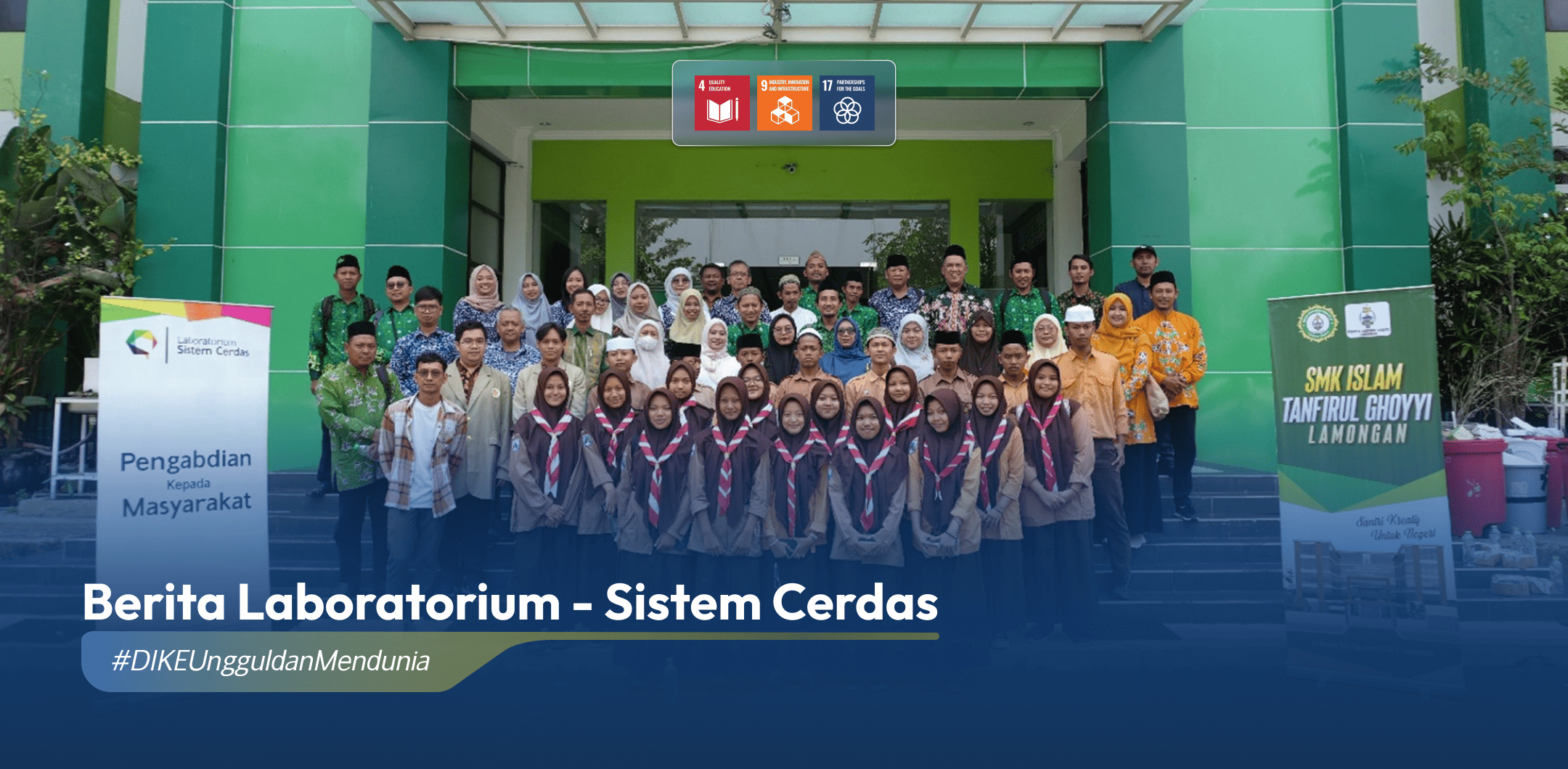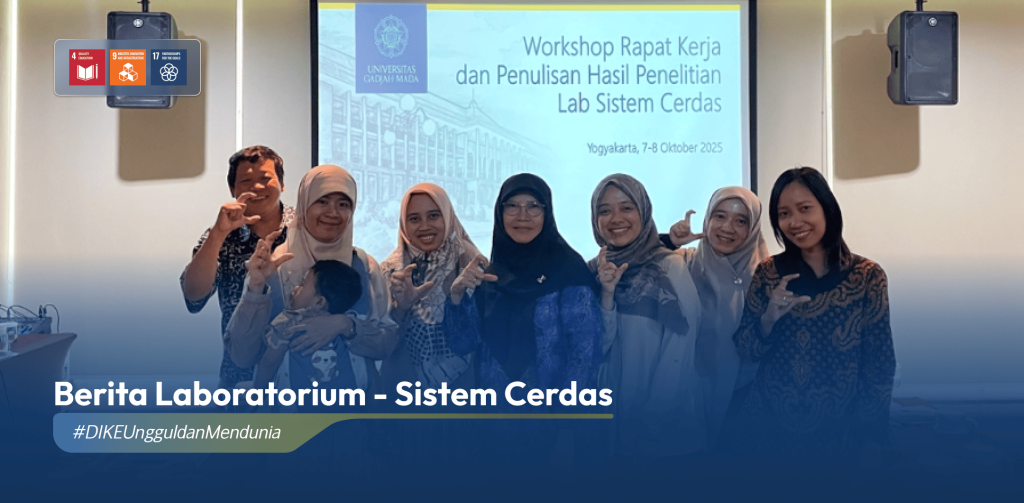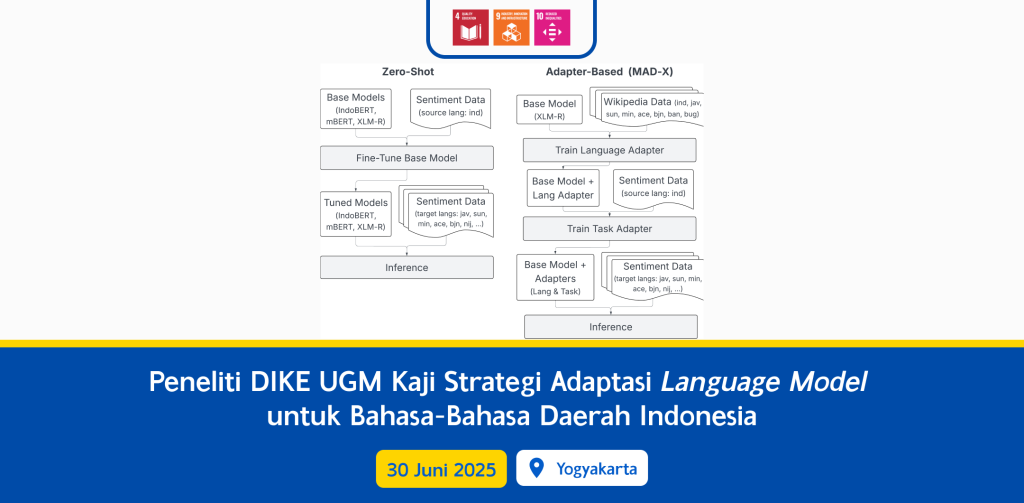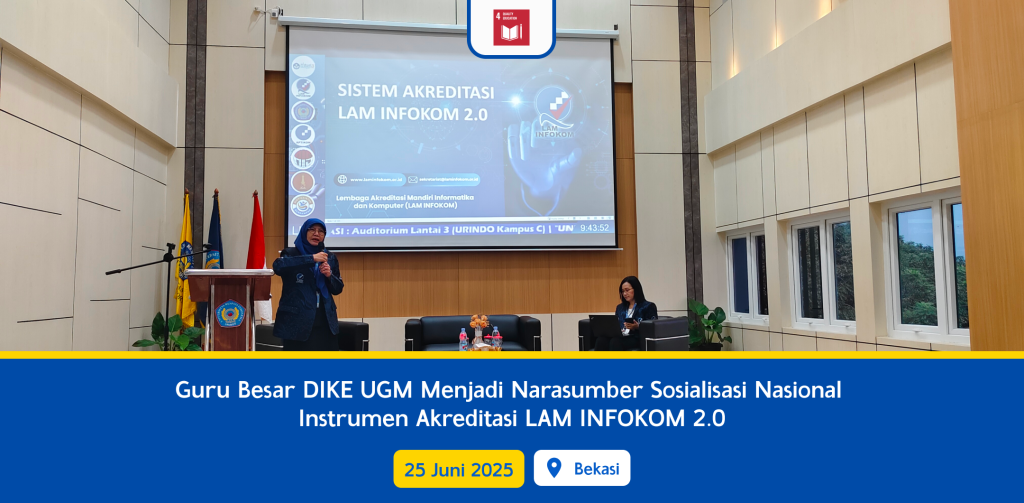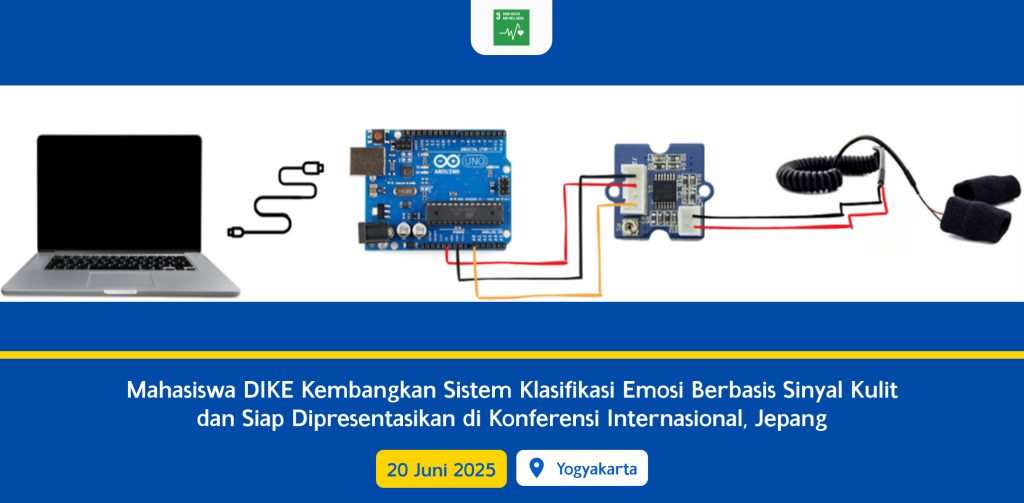Intelligent Systems Research Laboratory
Overview
Laboratorium Sistem Cerdas berorientasi pada pengembangan metodologi penalaran komputer, khususnya pengembangan aspek-aspek kecerdasan buatan yang merupakan state of the art sistem pada abad 21 ini. Selain itu juga menciptakan dan menggunakan teknik-teknik penalaran baru dan efektif, pemodelan dan simulasi yang didasari dari sistem biologi, serta sistem otak manusia. Bidang penelitian ini meliputi pengembangan sistem cerdas, sistem berbasis pengetahuan dan berbasis agen, sistem penalaran, sistem jaringan syaraf tiruan, komputasi DNA, komputasi membran dan komputasi evolusi, sistem agen, sistem robotika, sistem pendukung pengambilan keputusan, disamping pengelolaan pengetahuan.
Laboratorium ini juga mengembangan metode-metode untuk menghasilkan perangkat lunak yang berkualitas. Bidang penelitian lab ini meliputi semua tahapan pengembangan perangkat lunak, mulai dari user requirement, desain, implementasi dan pemeliharaan. Bidang lain yang menjadi fokus laboratorium ini adalah pengembangan infrastruktur informasi, sistem manajemen data, dan penambangan data. Data yang menjadi fokus perhatian laboratorium ini bisa dalam berbagai bentuk, misalnya dokumen, citra, sensor, web, data biologi. Laboratorium ini mewadahi penelitian-penelitian yang dilakukan dalam topik-topik yang berhubungan dengan:
- Kecerdasan Buatan (Artificial Intelligence): kemampuan mesin/piranti untuk menunjukkan perilaku cerdas, mengemulasi dan mensimulasi metode akuisisi dan aplikasi pengetahuan dan penalaran manusia. Merupakan topik penelitian yang mendalami cara untuk mengorganisasikan, merepresentasikan, menyimpan pengetahuan (knowledge) dan memanfaatkan pengetahuan (knowledge) secara tepat, dan efisien untuk menyelesaikan permasalahan, mendesain, dan membangun sistem cerdas. Beberapa topik dalam kecerdasan buatan adalah: a) Sistem agen (agent systems): membangun sistem yang berfungsi sebagai agen (misal: driver agent, agen monitoring proyek, dan lain-lain); b) Sistem penalaran komputer berbasis kasus (case based reasoning systems).; c) Sistem pakar (expert system)/ sistem berbasis pengetahuan (knowledge based systems); d) Pemrosesan bahasa alami (natural language processing); e) Pengenalan pola (pattern recognition); f) Pencarian solusi untuk penyelesaian masalah (searching); g) Sistem pancaindera (vision system); h) Permainan (games)
- Bionformatika : pemanfaatan ilmu komputer, matematika dan teori informasi untuk memodelkan dan menganalisa sistem biologi khususnya sistem yang melibatkan materi genetika.
- Kecerdasan komputasional (computational intelligence) : kajian dari mekanisme adaptif yang menjadikan perilaku cerdas pada lingkungan yang kompleks dan berubah. Penciptaan model algoritma untuk menyelesaikan permasalahan yang kompleks, meliputi paradigma jaringan syaraf tiruan (artificial neural network), komputasi evolusioner (evolutionary computation), kecerdasan kelompok (swarm intelligence), sistem fuzzy (fuzzy system), penalaran Bayes (Bayesian reasoning).
- Sistem Pendukung Keputusan (Decision Support System)/ Sistem Pendukung Keputusan Kelompok (Group DSS): pemodelan pembuatan keputusan dengan memanfaatkan kecerdasan komputasional, model matematis dan optimasi.
- Manajemen pengetahuan (knowledge management): pengelolaan pengetahuan (knowledge) secara eksplisit dan sistematis, serta proses yang terkait dengan penciptaan, ekstraksi, transformasi, penyimpanan, penggabungan, pemanfaatan dan pengembangan pengetahuan (knowledge) dalam mencapai suatu tujuan.
- Robotika (robotics): rancang bangun sistem robotika dengan menerapkan model pembelajaran robotika sehingga mencapai tingkat kecerdasan selayaknya manusia.
- Rekayasa Perangkat Lunak (software engineering), yang juga meliputi a) Model checking: melakukan pemodelan untuk testing validasi dan verifikasi perangkat lunak; b) Software process: tahap-tahap pembuatan perangkat lunak dan pemeliharaannya; (c) Software testing: pengujian untuk validasi dan verifikasi perangkat lunak; (d) Software project management: pengelolaan pembuatan perangkat lunak; (e) Semantic web dan ontologies: pencarian data atau dokumen berdasarkan makna semantiknya.

